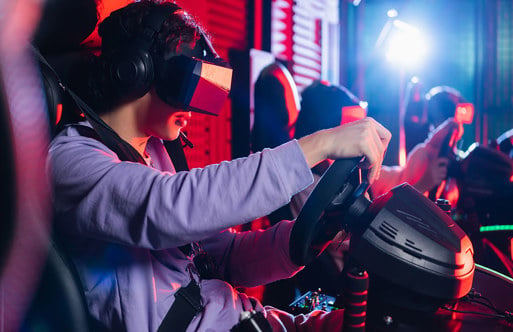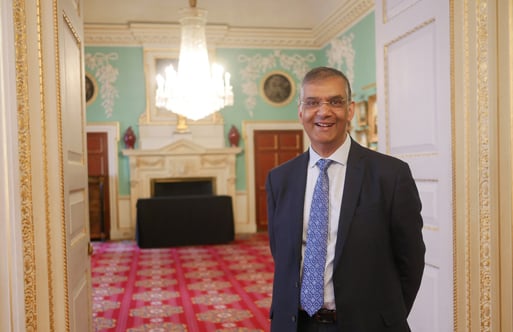Kolawole Daramola and BCS Early Careers Executive Sobia Iqbal take a look at the growing use of technology within the hospitality industry, the challenges which are currently being faced and the opportunities for IT professionals.
Technology has a reputation for disrupting sectors and the hospitality industry is no exception. Food, drinks, tourism, travel and recreation have all evolved from human needs to human wants thanks to technology. Multiple domains in IT present opportunities for curating memorable experiences for guests. For IT professionals in the early stages of their career or still studying, it is important to think of hospitality as curating experiences for consumers and as such, of certain domains as relevant to develop and hone skills in, to serve the hospitality industry. We explore some of these domains in this article.
User experience
User experience (UX) is an indispensable area for organisations that want to create wonderful experiences for clients, which can be adapted to take the centre stage for businesses in the hospitality industry. UX starts with carrying out user research within the space of the particular hospitality business by finding out what is lacking in the experience of the customer journey. The information from the research is then used to design the complete experience for the customer from prototyping to implementing, and a final phase that involves testing and monitoring so the customer experience can be improved upon in an iterative manner.
Customers’ impressions of the look and feel of the hospitality business’ website or app, the booking process, the digital experience during the actual experience and the post service marketing, determines whether they would purchase and return. Early career professionals looking to play a part can take user experience courses or seek internship opportunities, and a natural flair for creativity will certainly help. Airbnb is an example of a company which has consistently invested in their UX, making it a key factor in the success of the business.
Artificial intelligence
AI within the hospitality industry provides an avenue to curate unforgettable experiences for customers. As a business, when delivering goods or services to customers, it pays to think not only about how to provide an extremely good user experience, but also to be able to predict the best conditions to deliver in this experience in, all tailored to individual consumer preferences. Customer service is vital and AI can be used to enhance the customer service experience through the use of training models. Reservation bookings can also be improved to offer particular customer preferences based on previous history, helping customers feel valued — of key importance in the experience and the relationship between business and customer.
AI can also be used to aid the user research process in designing an unforgettable user experience. AI generated user research can create personalised marketing campaigns that inform customers of hospitality offers and deals, while giving the business an opportunity to serve them better. Using targeted emails showcasing the latest deals based on customer preferences, for example, will entice them to purchase and increase their satisfaction.
If AI is duly leveraged, it provides an opportunity to curate fantastic experiences for all involved. Accor Hotel group uses an AI tool, Gaïa, to not only ensure that its customers receive a tailored experience, but also to monitor consumption of water, energy, food, carbon footprint and other resources in a bid to minimise wastage of its resources. This not only results in an excellent client experience but also ensures that the business is running extremely efficiently.
Physical experience
Of course, we’re not limiting the use of tech within the hospitality sector to just human interaction with websites and apps. Let’s look at the actual physical experience which can also be enhanced with the Internet of Things (IoT).
Hotels can offer totally smart rooms to their guests. IoT enabled hospitality experiences present an opportunity to collect data from the IoT devices to curate personalised experiences based on device usage whilst staying at the hotel and using their facilities. IoT devices such as smart mirrors, smart food trays, smart keys, QR codes, and many more, let hotels and restaurants improve customer experience with minimal human interaction.
For you
Be part of something bigger, join BCS, The Chartered Institute for IT.
And it’s not just hotels. Airports and other hospitality service industries offer similar services through their use of IoT, and the possibilities are seemingly endless. Success has also been found through the use of chatbots as an important tool for flight bookings and hotel reservations. There are many opportunities for IT professionals in the IoT sector, and backgrounds in engineering, networking and/or programming are usually advantageous.
We will see many new fantastic uses of AI, IoT and UX and also robotics in the hospitality space. The COVID 19 pandemic further exposed the need for robots to assist in certain industries, and areas in which it’s not possible for humans to operate. Henn na Hotel in Japan is already embracing robot technology by deploying many types of robot throughout its site to create a truly futuristic experience for its guests.
Privacy
With every advancement in technology, there are always concerns. As IT professionals, these concerns represent challenges and new opportunities to be overcome. Let’s explore some of these concerns to highlight ways in which IT professionals can help to alleviate them.
Maintaining privacy is critical when it comes to the vast amounts of customer data collected and held by the hospitality industry. Customers, governments and activists have made efforts over the years to speak out about some of the inherent concerns which led to regulations such as the GDPR which have been designed to help ensure the highest levels of privacy and data integrity. IT professionals can play an important role in helping to safeguard data as IT compliance professionals, security engineers and privacy engineers.
Security
The greatest challenge to the privacy of data is the ability to secure it. Users of IT systems need to be assured of the confidentiality, integrity and the availability of their data when needed. For example, crimes may be perpetrated at the sites of hospitality businesses and the only sources of evidence may be computer forensic sources.
Cybersecurity is one of the most in-demand facets of IT at the moment. Cybersecurity provides an opportunity to work with the hospitality industry to help ensure the confidentiality, integrity and availability of customer data. Roles such as SOC analyst, GRC professional, privacy engineers and computer forensics experts will continue to be in high demand.
Systems availability
No machine or program can be said to be 100% efficient, hence the idea of a total reliance on IT systems in serving the hospitality industry poses a concern. While it is efficient to digitise as many processes as possible, it is necessary to have backup systems and not rely on just one. This concern provides an opportunity for reliability engineers, back up teams and cloud engineers.
Ethical and social concerns
It is necessary to consider every user when designing technology for the hospitality industry. Accessibility is a key area of importance, ensuring that users of these technologies are never disadvantaged or unethically excluded from their use. Striving to make software and systems accessible provides IT professionals with an opportunity to work in this area, building platforms that are explicitly created to support as many users as possible.
Courses and certifications
Some relevant courses from BCS that provide opportunities to contribute to the hospitality sectors include:
- BCS Foundation Certificate in User Experience
- BCS Practitioner Certificate in Data Protection
- BCS Practitioner Certificate in Freedom of Information
- BCS Foundation Certificate in Data Protection
- BCS Foundation Certificate in Information Security Management Principles
- BCS Essential Digital Skills Qualification for Work (EDSQ)
- BCS Foundation Certificate in Artificial Intelligence
- BCS Foundation Certificate in Ethical Build of AI
The Early Careers Executive of the BCS also provides support for young professionals or career changers. For more information, contact groups@bcs.uk help with choosing courses, coaching and mentoring from those already experienced within the fields explained in this article. The future of the hospitality industry, using technology to create unique experiences, is looking fabulous!

















